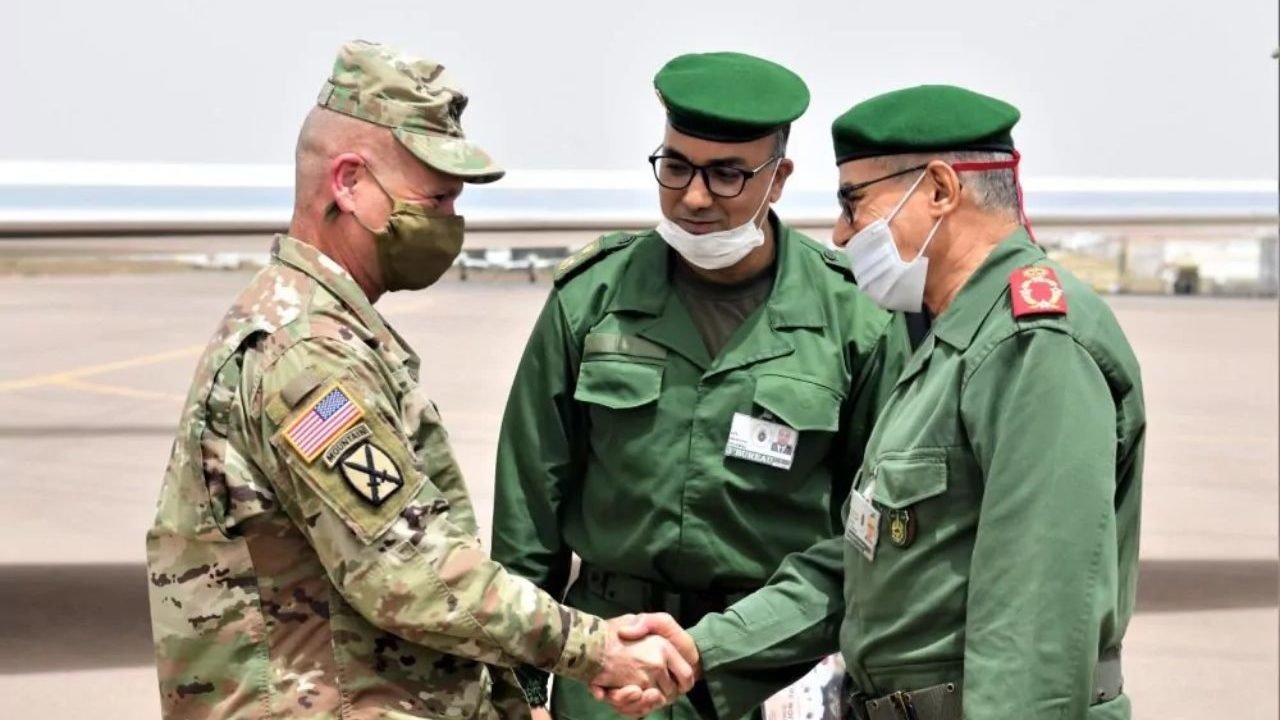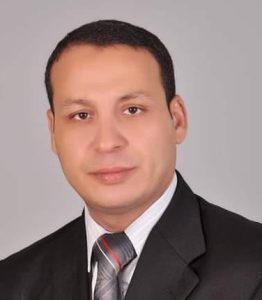The 2022 African Lion exercises hosted by Morocco, with the participation of the United States along with 18 other countries from June 20th to July 1st, took place amid turbulent international and regional conditions. These include the repercussions of the Russian war in Ukraine, the escalation of security threats in the Sahel region, as well as the growing tensions between Morocco and Algeria over the Sahara, which are yet to find a path for reconciliation.
The African Lion exercises this year were notable for a number of reasons, including:
Extensive international and African participation: Around 7,500 soldiers from 18 countries, led by the US Army’s Africa Division, and the Southern European Task Force in Africa, in partnership with units from the US Africa Command (AFRICOM), participated in these exercises. The exercises took place in four African countries, namely Morocco, Ghana, Senegal, and Tunisia. They will involve forces from Brazil, Chad, France, Italy, the Netherlands, Spain, and the United Kingdom.
Overlap with tense Moroccan-Algerian relations: Tensions between the two countries are especially focused on the Sahara issue, and there have been mounting Algerian tensions with European countries that support the Moroccan proposal for autonomy in that region. Algeria suspended its friendship agreement with Spain on June 7th, in response to the latter’s position of support for the Moroccan proposal.
Repercussions of the war in Ukraine: These exercises reflect the desire of participating countries to increase their readiness to confront threats and protect common interests. There are particularly concerns regarding the relocation of foreign fighters to various regions, including Europe, the African Sahel, and the Maghreb, and the threats this may pose, especially in terms of a new wave of terrorist activity in these regions.
Rising security threats in the African Sahel region: There is growing interest on the part of the countries participating in the exercises in confronting security challenges in the region, in light of the political instability created by the military coups in Mali and Burkina Faso. There are also concerns regarding the involvement of Wagner’s Russian forces in operations the fight against terrorism, as well as regarding the impact of French and European withdrawal from Mali, which helped the expansion of terrorist activity in the region and up to the Gulf of Guinea. These security challenges have serious repercussions on international and African security alike.
It can also be argued that this latest round of military exercises are particularly significant for Morocco, enabling it to achieve a number of objectives, including:
Enhancing Morocco’s strategic importance to North Africa: The participation of such a large number of countries enhances Morocco’s strategic role in North Africa and illustrates the international community’s confidence in Morocco and the stability it enjoys. The exercises also highlight the pivotal role Morocco is playing regarding regional and continental security, considering they were recently preceded by the Conference of the International Coalition to Counter ISIS, which Morocco hosted on May 11th. During the conference, Morocco explicitly linked separatist agendas and terrorist threats in the African continent.
Strengthening security cooperation between Rabat and Washington: The African Lion exercises have been held on Moroccan soil for several years now, which affirms the strategic importance that Washington and Rabat attribute to this military cooperation, and to the security dimension of this regional cooperation at the African level. Morocco wishes to leverage this cooperation to increase its influence on the continental and international levels.
Illustrating Morocco’s control over the Sahara: The exercises took place kilometers from the Algerian border and included for the second time the Mahbas area in the Sahara, adjacent to the Algerian border. By conducting the exercises in this area, Morocco aims to send a strong message to Algeria that it has the combat and military readiness to impose its control over the entire Sahara.
Foiling Algerian pressures on Morocco: It is worth noting that several countries who participated in the exercises have declared their support for Morocco’s proposal regarding the Western Sahara region, including the United States and the Netherlands, which lately declared its support. While Morocco and the United States invited Spain to participate, it declined to do so. Morocco aims to demonstrate that many international and European players endorse its position regarding this issue, and to undermine Algeria’s opposing stance diplomatically.
However, the successful holding of the African Lion military exercises this year may also have a number of unintended consequences, including:
The use of military exercises as a tool in bilateral relations: The African Lion exercises were preceded, on June 6th, by Algerian military exercises with live ammunition in the southern operational sector in Tindouf, in anticipation of the military exercises in the Mahbas area. The Algerian military exercises, Endurance 2022, were preceded by a naval version, Deterrence 2021, held in September 2021 on Algeria’s “second military front”, which includes the border with Morocco. On May 23rd, 2022, Algeria once more conducted naval exercises in this area, dubbed Hurricane 2022. All these exercises aim to send warning messages to Morocco.
Accelerating a Moroccan-Algerian arms race: Both countries are working to develop their military capabilities in a fast-paced arms race. While Algeria is seeking to acquire Sukhoi SU-57 fighters, to be the first African country to obtain them from Russia, Morocco intends to rely on Israeli mediation to persuade the United States to sell it F-35 fighters, to strengthen its military air arsenal. While the African Lion exercises mainly focus on penetrating the air defense of a hypothetical enemy equipped with the Russian (S-400) system, it is worth noting that Algeria deployed this system last January for the first time, becoming the third country to do so after China and Turkey. This angered the United States and prompted it to agree to supply Morocco with a Patriot missile system. Algeria’s insistence on deploying the S-400 system indicates the possibility of future escalation, either through more deeply coordinated exercises, or expanding the scope of Morocco armament.
Military escalation by the Polisario: These exercises came in the context of threats from the Polisario that it would launch attacks on cities in Western Sahara, as well as hinting at the possibility of terrorist attacks inside Morocco. International monitoring reports revealed an “unofficial offer”, made during a meeting between Said Chanegriha, Chief of Staff of the Algerian Army, and Dmitry Shugayev, the official in charge of military and technical cooperation in Russia, held in the Algerian capital last March. The offer allegedly proposed training dozens of members of the Polisario Front on techniques of warfare and countering Morocco’s use of drones in military operations against the group’s incursions into the Sahara.
Intensifying Russian American rivalry: Algeria is preparing to conduct joint military exercises with Russia, on the eastern border with Morocco in November 2022 at the Hamkir base in Algeria. Russia’s participation in the exercises near the Moroccan border appears to be an attempt to implicate it in Algeria’s confrontation with its neighbor. This indicates that US-Russian competition in the region is likely to escalate. As Washington is increasing cooperation with Rabat through the African Lion exercises, Moscow is in turn responding by strengthening cooperation with Algeria through holding joint military exercises next November.


